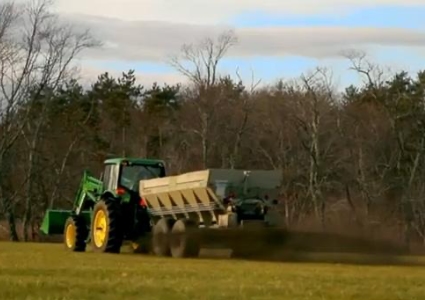Trustee Elections
These are the original issues in this subcategory
- LIVESTOCK ANTIBIOTICS
- NITROGEN FERTILIZER
- BIOSOLID FERTILIZER
Biosolid fertilizers, often called sludge, are made of processed sewage from municipal waste treatment facilities. This nutrient, like other types of manure fertilizer, is then applied to croplands and rangelands. About 7 million tons of dry sewage sludge is used or discarded each year. This includes 4 million tons that are used as fertilizer on farms, parks, golf course lawns and gardens. Dioxins, toxic heavy metals and harmful organisms are often present in biosolid fertilizer. The EPA has decided against regulating dioxins in land-applied sludge because it believes there to be minimal danger from it.
Sludge proponents claim that when the levels of these contaminants are low, biosolids offer legitimate help for land that is deficient in nitrogen or phosphorus. They also say biosolids reduce the costs of sewage treatment and the need for landfills.
Biosolid critics want to label all products that have been treated with sludge, while supporters believe this labeling is unnecessary.
Proposed Legislation: H.R.2064 - Sewage Sludge in Food Production Consumer Notification Act (115th Congress 2017-2018)
Prospective Sponsor: Rep. Ron Kind (WI)
Sludge proponents claim that when the levels of these contaminants are low, biosolids offer legitimate help for land that is deficient in nitrogen or phosphorus. They also say biosolids reduce the costs of sewage treatment and the need for landfills.
Biosolid critics want to label all products that have been treated with sludge, while supporters believe this labeling is unnecessary.
Proposed Legislation: H.R.2064 - Sewage Sludge in Food Production Consumer Notification Act (115th Congress 2017-2018)
Prospective Sponsor: Rep. Ron Kind (WI)

- I oppose reforming current biosolid fertilizer usage policy and wish to donate resources to the campaign committee of Speaker Nancy Pelosi (CA).
- I support requiring the labeling of food that is produced on land to which sewage sludge has been applied; the labeling of poultry or livestock that were raised, or that consumed animal feed produced on land treated with biosolids, and wish to donate resources to the campaign committee of Rep. Ron Kind (WI) and/or to an advocate group currently working with this issue.
- I support requiring the labeling of food that is produced on land to which sewage sludge has been applied; the labeling of poultry or livestock that were raised, or that consumed animal feed produced on land treated with biosolids, and wish to donate resources to the campaign committee of Rep. Ron Kind (WI) and/or to an advocate group currently working with this issue.
There has been $0.00 pledged in support of this issue
Trustee Election - Opening Date
July 4, 2022
Trustee Election - Closing Date
July 11, 2022